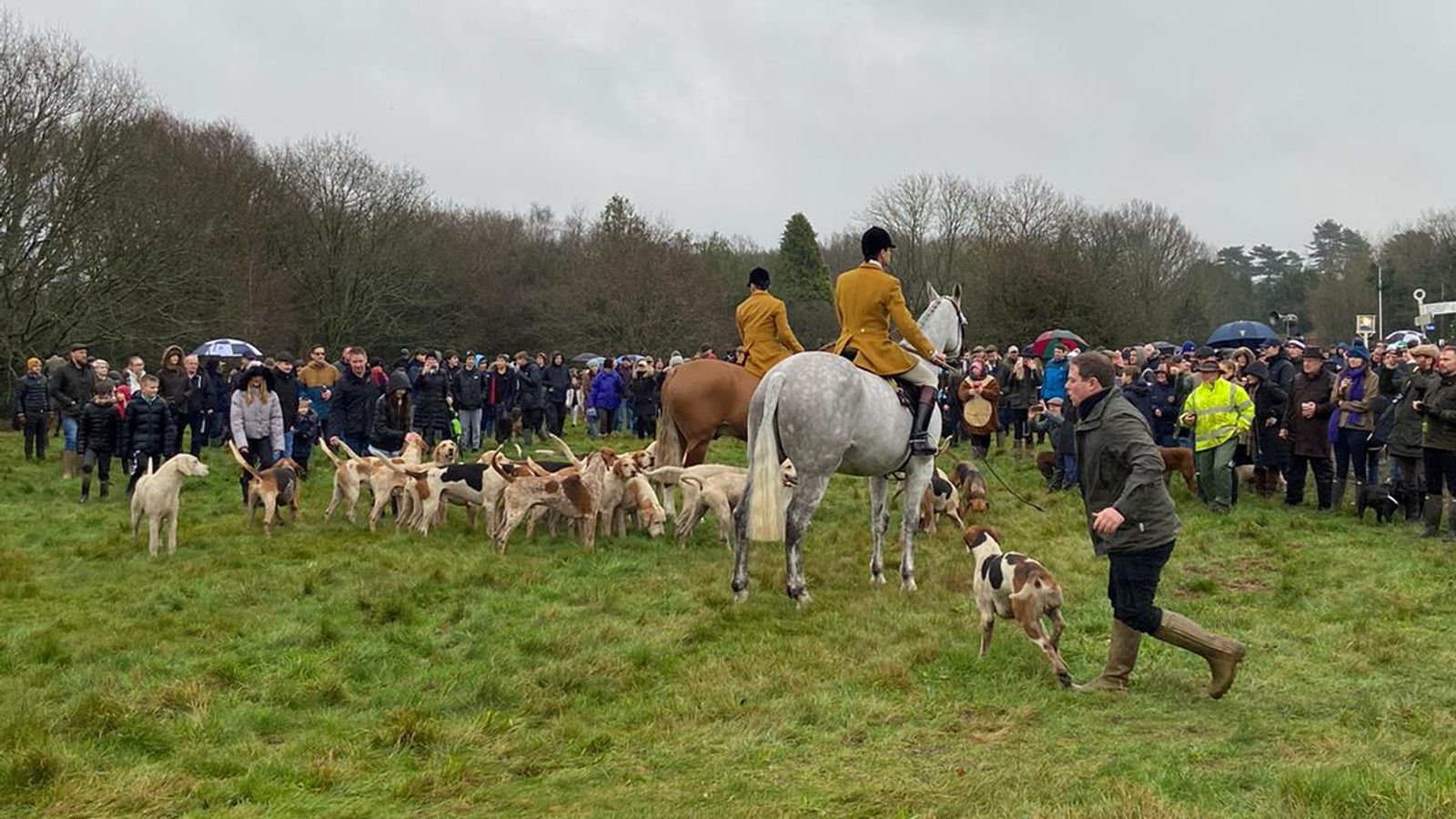“Shame on you! Shame on you!”
This was the annual Boxing Day hunt, setting off from the village of Cholesbury in Buckinghamshire against a backdrop of jeers and cheers.
Hundreds of people turned out to support the Kimblewick Hunt, led by Andrew Sallis, but there was a vocal group of animal rights campaigners who made their voices heard too.
The hunt gathered a day later than usual because Boxing Day fell on a Sunday, and they traditionally don’t go out hunting on Sundays.
The hunting of foxes was banned in 2004 by Tony Blair’s government, so instead the hounds follow a scent laid down with a rag, something known as trail hunting.
Anti-hunting activists allege this is simply a smokescreen and that the killing of foxes has not stopped. They point to the conviction of a leading huntsman in October for giving online masterclasses on how to circumvent the 2004 Hunting Act as proof.
“There’s absolutely no doubt they are hunting every time they go out,” said Jackie Cox from Action Against Foxhunting.
National Trust members vote to ban trail hunting amid concerns it is a ‘cover’ for hunting with dogs
May says she has received ‘clear message’ as she scraps fox hunting vote
Theresa May to U-turn on fox hunting free vote
“I have seen them hunting with my own eyes. It’s blood lusting. We won’t stop coming until it ends.”
Prominent landowners like the National Trust have now decided to stop allowing hunting to take place on its land, with Labour also calling on the government to do more.
For master of the hounds Andrew Sallis, this is yet another attack on his livelihood and something that has been part and parcel of life in these rural villages across the Buckinghamshire border with Oxfordshire since the 1700s.
“I think they are rather missing the point,” he told me. “Hunting a live quarry has been banned 17 years ago. It’s the politics of tokenism.
“Is this really about animal welfare, or is it about a set of politicians who have a big, big problem with a large slice of the rural population?”
The hunt passed off peacefully under the watchful eye of a handful of Thames Valley Police officers.
If campaigners have their way, this centuries-old tradition could one day be consigned to the past.






















